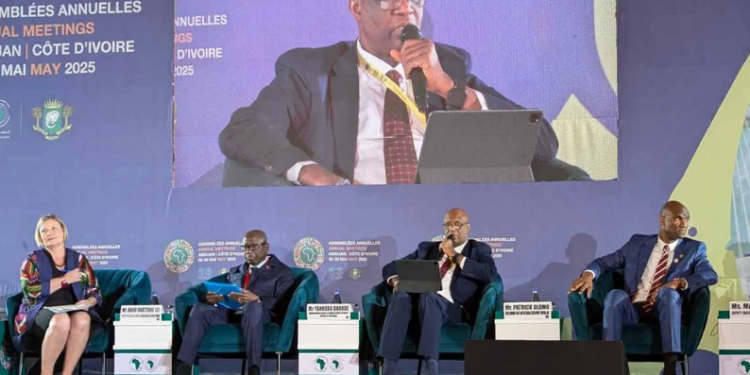Under the humid skies of Abidjan, the murmur of African, French, and English languages blended with the hum of screens. At this week’s Annual Meetings of the African Development Bank (AfDB) held in Côte d’Ivoire, there was one clear topic: digitalizing the continent’s tax systems—not as a trend, but as an urgent necessity. In the main auditorium, Kevin Chika Urama, AfDB’s Chief Economist, laid out the figures plainly. Up to 125 billion dollars a year could be added to public coffers simply by modernizing tax structures. Without raising taxes. With full digitalization of the public sector, annual revenues could reach 687 billion dollars—funds to invest in health, education, and infrastructure.
In the front rows sat officials from African governments. Behind them, experts from the IMF, UN, and African Union. On the sides, business leaders and private sector representatives. All shared the same concern: how to transform a weak, inefficient, and often corrupt tax system into an engine for development. Mary Baine from the African Tax Administration Forum (ATAF) took the microphone, her voice firm and eyes steady. She emphasized that without transparency, there is no effective tax collection. Citizens pay when they understand and trust the system. “Digitalization is no longer optional,” she said, as many nodded in silent agreement.
Angola: the power of community defeats cholera in Boa Vista
Carina Sugden, governance expert at AfDB, guided the discussions. On the table lay three challenges: digital infrastructure, staff training, and political will. From Gambia, Yankuba Darboe insisted on the basics: without trained officials, digital tools don’t work. From Côte d’Ivoire, Ouattara Sie Abou called for reforms that don’t punish the few who already comply. The goal: broaden the tax base, not squeeze it.
Anu Saxén, Finland’s ambassador, offered support—technology, expertise, partnerships. She spoke of artificial intelligence, mobile payments, and interoperability. In hushed conversations, several attendees referenced Kenya’s M-Pesa—a silent revolution with more impact than many laws. In Uganda, results are already visible: a 47% increase in customs revenue after digitalizing processes. Allen Asiime from TradeMark Africa shared this progress. Benefits extend to small businesses, once invisible, now active.
From the Japanese company SENRI, Kentaro Nagai reminded the audience that limited connectivity is not solely an African problem. What’s missing, he said, is adaptation: solutions designed for African realities, not copied from other continents. In another panel, John Bosco Sebabi of the Pan-African Payment and Settlement System (PAPSS) highlighted a structural issue: only 14% of African trade is intra-African. One reason is the lack of regional payment networks. A common, secure digital system could boost both trade and revenue collection.
Bridget Kelly from FreeBalance closed with a key point: trust. A clear, accessible, and efficient tax system generates compliance. Sustained compliance, over time, is the true engine of development. The meetings ended with a shared certainty. Fiscal digitalization is not just a technological challenge. It is a political decision. A strategy of sovereignty. A gateway to development financed from within, with own resources and clear rules. Africa, many agreed, can no longer wait.









